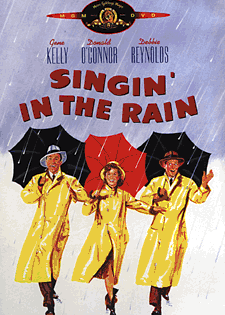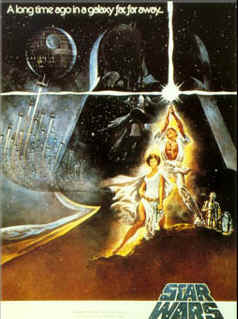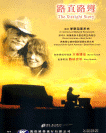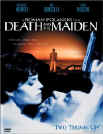
| |

     
    
Excellent work!
I really mean that. I was very impressed with the standard
of English, structure and level of argument in the essays. The vast
majority of people were also able to use quotes and references in ways that
would satisfy any international academic institution. I read lots of
essays of which the students who wrote them should be very proud.
Unfortunately, it is the nature of comments like this to pick up
on the mistakes more than the things that went well! Below are just a few
issues that appeared in several people's essays. Just because the comments
appear here, though, doesn't mean it applies to your work.
General
 |
Essays were often one-sided. For example, after giving
quite good definitions of science fiction, many essays would make very
strange arguments trying to attribute some elements of fantasy (eg the
Force) to science.
|
 |
Conclusions were generally the weakest part of the
essays. There were many essays that would try to answer the difficult
questions by concluding that "I agree with... (the
sentence in the question) in some ways." What would
be far better is to give more detail about in which ways you
agree/disagree. |
For example in many Straight Story essays many people said
that they agreed "in some ways" that all American life can be seen
in the film. However, a far more informative conclusion might be that
"although there are some unpleasant features of American life that aren't
shown in the film, the film reflects many of the positive aspects" or
"Lots of ordinary aspects of life can be seen in The Straight Story, but
the more unusual aspects that aren't part of day to day life for the vast
majority of the population (eg very great wealth, gun crime and drugs) are
omitted. Both these examples show that you don't agree entirely with the
question posed at the beginning, but they give the reader a much better
impression about the writers own ideas. Also very few people made the
obvious point that it is impossible for any film to truly represent "all
American life" or all life from any country.
 |
Many people used a very useful quite from barnesandnoble.com
when trying to define escapism. It said "Escapist films attempt
to remove the audience members from their own world and the problems within
their world by offering an alternative world view or
perspective..." This is a good quote, and useful. However,
many essays didn't go on to explain how directors achieve
this; things like predictable, linear plots, clear distinction between good
and evil characters, happy endings, attractive stars as actors etc etc |
Language
 |
Several students mixed the words "actor" with
"character". For example, in Moulin Rouge, Christian is the
character, Ewan McGregor is the actor, or in Vertigo, James Stewart is the
actor, Scottie is the character.
|
 |
There were a number of abbreviations and colloquial
expressions in the essays that shouldn't appear in formal writing.
Sometimes things like "sth" or "yeah" were there.
There were also lots of "Sci Fi" when it should have been
"science fiction".
|
 |
Spelling was generally excellent, but lots of students who
wrote about Moulin Rouge need to learn the difference between "The
Duke" and "The Duck" |
Films
 |
Nearly every Death and the Maiden essay talked very well
about the ways in which the characters subvert the expectations about good
and evil. However, several missed out the important idea that the
films ending didn't match Hollywood expectations. According to these
expectations Paulina should have killed Dr. Miranda.
|
 |
Lots of people used the term "working class" to
describe the Deer Lady in the Straight Story. Actually the term
"working class" is generally used to describe people who's job
involved in quite intensive manual industry. The Deer Lady is a member
of the middle class.
|
 |
Very few essays comparing "Singin' In the Rain"
and "Moulin Rouge" pointed out that "Singing in the
Rain" is far more innocent and "Moulin Rouge" is much more
forward about sexuality |
Finally, James would like to say that he was disappointed that no-one studied
the impact of escapism on the 1999 classic, Deep Blue Sea. (But Russell
doesn't think its a classic!)
|

